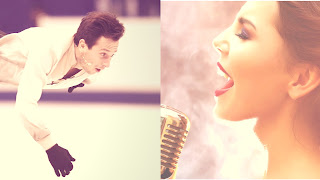Part 2, Neo-Singing…? Neo-Skating… Anything Else?

What do we mean by that? We mean… NO singing and NO skating… per say. “It’s quality of skating, not quantity of jumps” - states Canadian figure skating champion, Patric Chan. “Skating can be rewarded” - said the figure skating commentator, Rod Black, after the U.S. well-known skater, James Brown’s ice performance. James Brown himself said: “ Of course, I can land ripples and quads, but not in the expense of the artistry!” Given all that, in this case, the skaters themselves are revolting against “ice acrobatics” and overall “ice circus”, so to speak. They actually have been missing the artistry of their craft, as well as poise and grace, which had always made figure skating field a very special place where they had an opportunity to show off their very special skills (and not just very dangerous and vigorous jumps which, in turn, could, at any time, become very detrimental to their body’s anatomy and physiology). I just watched a pre-holiday movie where the


